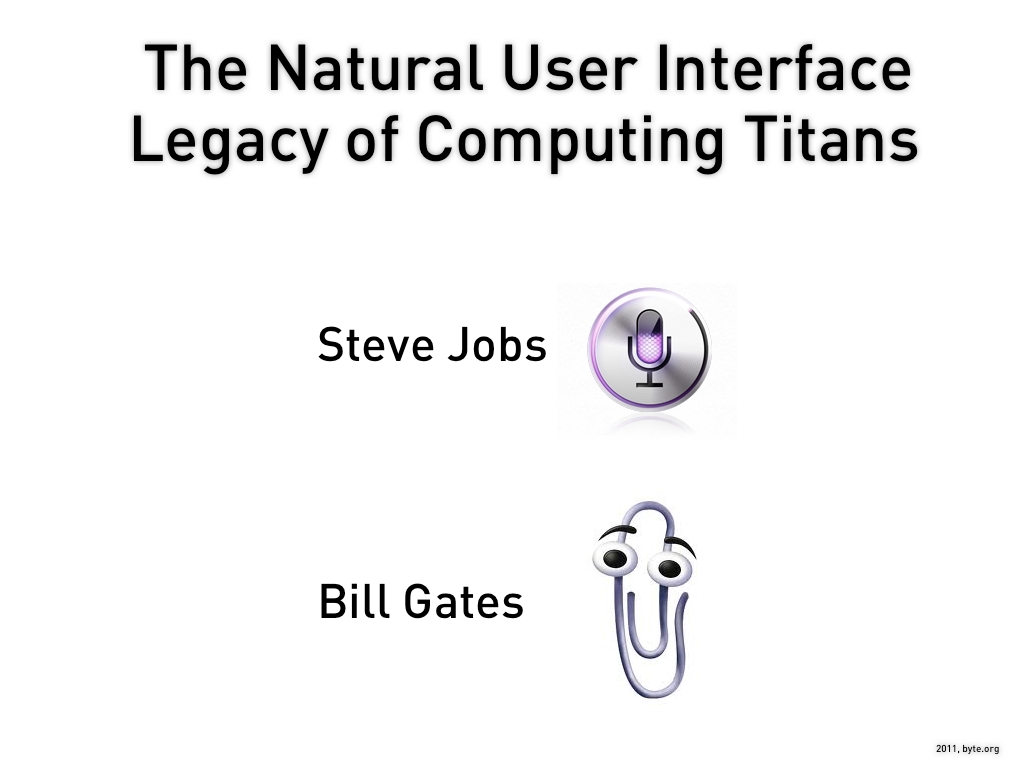How RIM can save RIM from RIM
I’ve been noodling a ton of thoughts about RIM these past few weeks. I originally wrote this in a text document almost two months ago. Reading this week that RIM might be abandoning their tablet plans, I’ve gained faint hope that they might save themselves. In light of this, I thought these scribbles might live better here on my blog, even in an unfinished state. I may have more to add to this, but don’t stay awake waiting for updates ![]()
Here are my rough thoughts on what RIM could do to save their business…
Fork RIM
RIM needs to fork – employ a two prong approach. Pursue Government and Enterprise (G&E) separate from consumer. Their G&E approach should be exactly what they are doing now. Work it hard, milk it. Don’t expect it show material growth, but don’t underestimate its ability to churn cash.
Separately, go hard at consumer. Focus on three things and three things only – worldclass handset, worldclass OS and 6-10 worldclass apps.
6-10 Apps
Cede the “Blackberry” moniker to your core market and build a complimentary new brand to go after the consumer handset space. Don’t listen to a thing the carriers tell you about this brand. You want to do one thing and one thing only with this brand – use your BBM base to build a brand based on Social Mobile. What is social mobile? Think of what apps like foursquare, Color, Twitter and Instagram promise – now think of the core features of these services as hooks in an operating system backed by powerful cloud services operated by RIM. Social Mobile Messaging (BBM), Social Mobile telephony, calendaring, pictures, etc. Build out your own apps, publish the APIs to those apps and use those APIs to foster a new developer community. Don’t force these new apps to run on your aging network – this is the time to adopt the standard networks that everyone else is using for their message transport – consumers don’t care about the level of reliability and security that using RIM’s network offers G&E customers.
Worldclass Handset
Build an incredible handset that you can offer direct and unlocked to customers for $300. Not $300 subsidized on a three year contract only via a carrier, but $300 period. Don’t compromise on its design, function or performance. Do what you have to do with the time you’ve got to make a meaningful impression on this market. Make it easy for them to buy your phones, promise next day delivery at no extra charge when they buy two or more. Make a deal with Amazon to bundle in eMusic and eBooks (two services that you promise me you won’t care about because you need to worry about your core business and not being a media mogul) in exchange for them carrying your handsets globally – on their home page. They’ll do it – they need friends just as much as you do when it comes to competing with Google and Apple.
Worldclass OS
QNX will get you there but for the love of everything holy, PLEASE STOP SELLING TABLETS! Its a distraction. You are not Apple. You’ve got too many fronts open right now and you’re not winning with anything. Lock down your focus on protecting G&E and building out your consumer business. Focus consumer on smartphone apps, handsets and OS and getting them out the door as quickly as possible. Consumers care way less about Flash, batter performance and network security than they do that they’ve got awesome connectedness with their friends, family and colleagues.
And guess what, momentum in the consumer space translates into win’s in G&E. Corporate IT doesn’t call all the shots anymore. The days of completely centralized IT decision making are waning and as we move further into the post-PC world, it continues to become more and more of an exception (the last corporate issued phone I used was a Nokia 5190. Since then I’ve owned three berry’s, two Palm’s, a WindowsMobile device and four iPhones).
Get Jim and Mike out of the way
Jim – Mike, this section is special for you – get out of the way! You guys are ridiculously smart and successful but you are coming off like buffoons trying to play the hero. Take a more senior role – mentor people, guide them, lead them – but please, stop trying to force everything down a specific path. You need fresh blood at the top that can breathe life into your strategies. It isn’t 1999 and squeezing every ounce out of a battery or radio is no longer enough to win the day in the market. I know you know this, so stop acting like you don’t.
Don’t make the same mistakes you made with your sales and marketing in the G&E segments. Don’t organize around carriers or products – organize around customers – the real people that buy and use your handsets. Keep it small and nimble and let your people make huge mistakes quickly while they learn what they need to do to be successful in this space. Jim and Mike get huge props for getting the company this far, but just like everyone else, they aren’t the smartest guys in the room. Make room for the other smart people at RIM to get in on the fun.


 I was pleased to
I was pleased to  Home Depot has the advantage of its retail locations that give customers the opportunity to do some hands-on shopping and comparison. However I’m certain that for many items, the savings will be enough to compel many customers to do their browsing in Home Depot’s big box stores and place their order online after they’ve made up their mind to make sure they capture the savings that Amazon is passing along.
Home Depot has the advantage of its retail locations that give customers the opportunity to do some hands-on shopping and comparison. However I’m certain that for many items, the savings will be enough to compel many customers to do their browsing in Home Depot’s big box stores and place their order online after they’ve made up their mind to make sure they capture the savings that Amazon is passing along.
Comments…